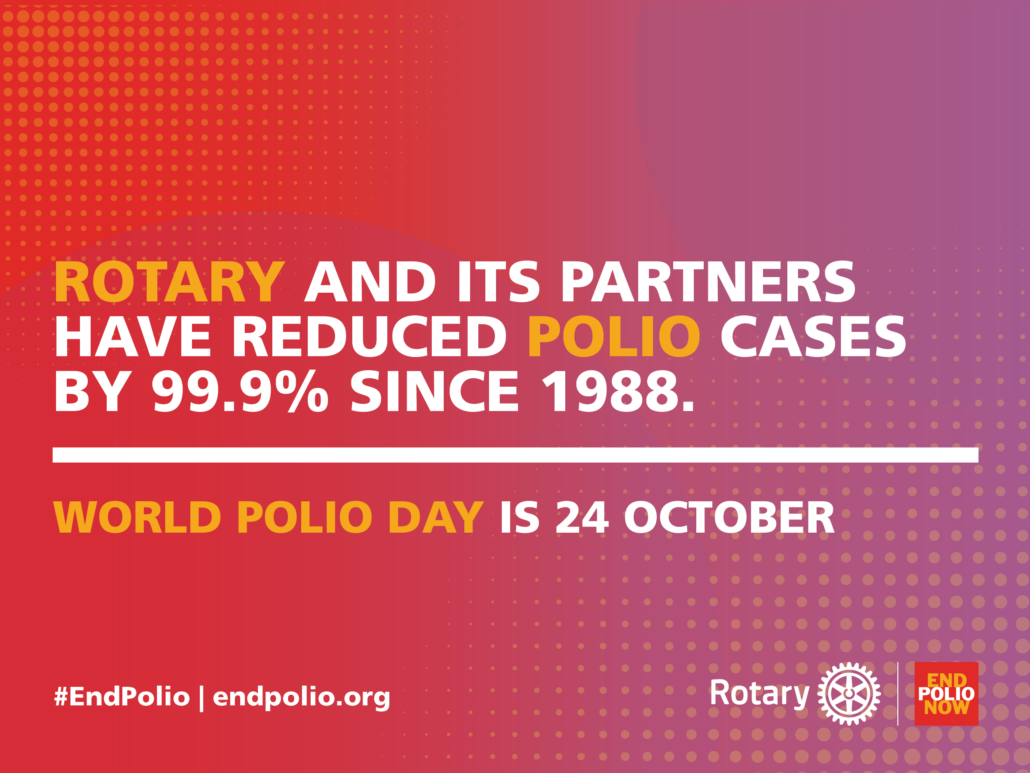World Polio Day on October 24th is an annual day that highlights progress on the road to polio eradication


As new outbreaks of an archaic disease sweep the globe, hygiene experts warn that vaccination as the first line of defence must be backed up by adequate hygiene.
Cases of polio have been detected in the United States, United Kingdom and Israel in the last few months; places where cases had not been detected for many years.
“Usually this annual moment of World Polio Day is about marking progress and seeing how far the world has come in eradicating the polio epidemic in dozens of countries,” said Professor Albert Ko, Professor and Chair of Epidemiology of Microbial Diseases, Yale School of Public Health. Pakistan and Afghanistan are the only two countries where it remains endemic. “But this year, recent outbreaks have highlighted that diseases, both old and new, can emerge at any time, which is why it’s important to always maintain good hygiene as a first line of defence.”
Poliomyelitis, or polio, is a highly contagious viral disease that most commonly affects children under five years old. While around 75% of infected people won’t experience any symptoms, for others polio can lead to paralysis and even death. It typically spreads through contact with the faecal matter or via droplets in a sneeze or cough from an infected person. The polio vaccine, developed in the 1950s, offers significant protection.
Last month, New York State declared a State Disaster Emergency after detecting a case of polio in Rockland County. It was the first detected in the U.S. in over a decade. Health officials have since found traces of the wild poliovirus in the wastewater samples of five other nearby counties, which points to the potential of local spread. Cases were also diagnosed in London and Jerusalem earlier this year.
New York’s state of disaster emergency has allowed for authorities to increase their vaccination efforts. Authorities have been urging all unvaccinated New Yorkers, including children under two years old, to get the vaccination. In London, booster doses are being offered to all children aged between the ages of one and nine. The World Health Organization has categorised polio as a Public Health Emergency of International Concern.
“A vaccination for polio has long existed and is the best way to prevent the spread of polio, but this should, and must, be supported by regular and increased handwashing. The fact that many people experience no symptoms at all means that individuals shouldn’t be waiting to fall ill before they implement those extra hygiene measures,” Simon Sinclair, Executive Director of RGHI said. “These incidents of polio are a reminder that we should always have a guard up and be practising good hygiene and passing those behaviours onto children, especially as they are the ones most at risk.”
One concern is that, amid COVID-19, many children missed out on their routine vaccinations. Around 25 million children worldwide were thought to miss some or all of their immunizations in 2021.
“We join in calls from the various governments and the global health community for both adults and children to be immunised against polio if they haven’t been already. That’s the first course of action,” Simon Sinclair continued. “After that, it’s about maintaining those hygiene habits that became so ingrained during the height of the pandemic. That means regular hand washing for over 20 seconds with soap and clean water.”
RGHI, a hygiene research focussed nonprofit, will also be supporting these efforts by continuing its important work in funding and producing evidence that demonstrates the link between health and hygiene. The aim of the organisation, founded by global consumer goods company Reckitt plc, is to provide decision-makers with more timely, accurate and practical information on ways to better safeguard communities from illness.
“The more we know about the various dangers diseases such as polio pose to our health and the ways in which hygiene may prevent and fight off such diseases, the better chance we have of eliminating unnecessary illness and death,” Simon Sinclair concluded.